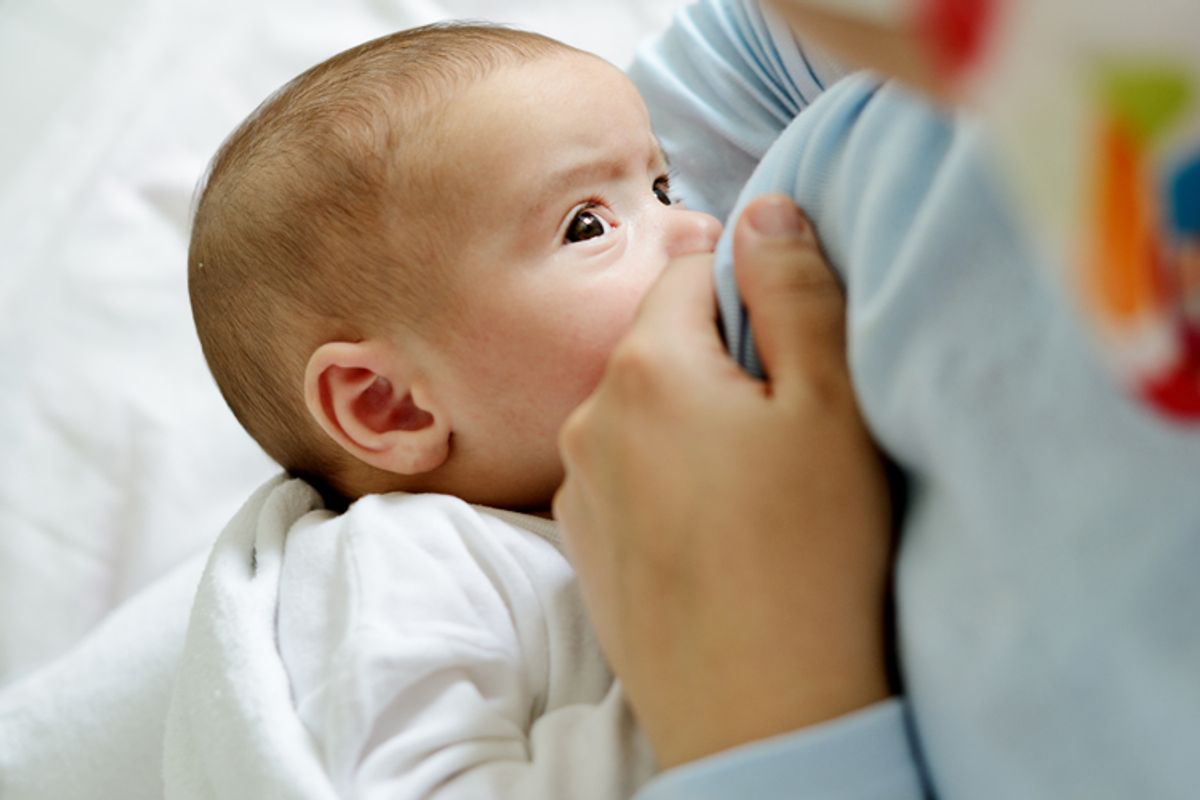In case you were looking for another reason not to buy breast milk online, here it is: A study out this week finds that, in addition to containing dangerously high levels of bacteria, much of the breast milk sold on the Internet is not, in fact, human. Or, at least not entirely.
Researchers at the Nationwide Children's Hospital Center for Biobehavioral Health found that one in 10 samples of breast milk purchased online also contained significant traces of cow's milk, which pediatricians recommend avoiding for infants under 12 months of age. The study's lead author, Sarah Keim, contends that sellers at "milk-sharing" websites intentionally add cow's milk to the substance and market it as 100 percent human, in order to increase the volume of the product.
In the study, published online today (April 6) in the journal Pediatrics, the researchers obtained 102 samples of breast milk purchased from "milk-sharing" sites for anywhere from 50 cents to $3 per ounce, Keim said.
The analysis found that 10 percent of the breast-milk samples tested contained bovine DNA, meaning it was not 100 percent human milk but rather was tainted with cow's milk products.
The researchers noted that their analysis was not able to determine whether the adulterated breast milk contained cow's milk itself or another product, such as cow's-milk-based infant formula.
The researchers estimated that 10 of 11 adulterated breast-milk samples contained at least 10 percent cow's milk.
Keim and her colleagues have already been instrumental in revealing the dangers of online breast milk, with earlier findings that showed the prevalence of salmonella in a disturbing number of samples from the Internet. Many women might turn to milk-sharing websites if they don't produce enough milk on their own or if they have adopted children. But Keim's research highlights the need for other options that don't include online classifieds of questionable intent.

Shares